NEW! Recording now available for The Udder Truth: An Opening Dialogue on the Risks and Opportunities of Unpasteurized Milk
Posted: June 5, 2012
Categories: GoodFoodBites / News from Sustain Ontario
New!!! You can now download a recording of the webinar event.
June 4th, 12-2pm
As the debate around the safety hazards and potential health benefits of unpasteurized milk grows, so too does the need to understand the reasons for and against pasteurization. Sustain Ontario has brought together a panel of experts to clarify some of the myths and facts about unpasteurized milk and begin an open dialogue between advocates on both sides. We hope to cover the history and reasons for pasteurization in Ontario, the public health risks of unpasteurized milk, the health claims of unpasteurized milk and the impacts on dairy producers. There will be a half hour for questions and answers.
Panelists include:
Dr. Mansel Griffiths, Research Chair in Dairy Microbiology in Food Sciences at the University of Guelph;
Sally Fallon-Morell, founder of the Weston Price Foundation;
Dr. Ted Beals, pathologist focused on dairy
Dr. Rosana Pellizaari, Medical Office of Health for Peterborough County;
John Van Dyk, Ontario dairy farmer; and
Sara Zborovski, Partner at Gilbert’s LLP and Sustain Ontario volunteer.
The panel will be moderated by Professor Alison Blay-Palmer.
Read more for panelist bios.
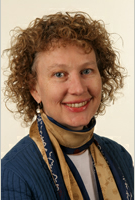 Alison Blay-Palmer is an Associate Professor at Wilfrid Laurier University in the Department of Geography and Environmental Studies where she does research on resilient food systems and sustainable communities. Her books, ‘Imagining sustainable food systems: Theory and practice’ and ‘Food fears: From industrial to sustainable food systems’ explore pressures and opportunities related to food system sustainability. Her most recent journal papers are published in Local Environment, the International Journal of Planning Studies, Economic Geography, Environment and Planning A and C, and the Canadian Journal of Regional Science. Her current research looks at community food initiatives throughout Ontario and is linked to the Ontario Ministry of Food and Rural Affairs as well as a number of academics and post-secondary institutions throughout the province.
Alison Blay-Palmer is an Associate Professor at Wilfrid Laurier University in the Department of Geography and Environmental Studies where she does research on resilient food systems and sustainable communities. Her books, ‘Imagining sustainable food systems: Theory and practice’ and ‘Food fears: From industrial to sustainable food systems’ explore pressures and opportunities related to food system sustainability. Her most recent journal papers are published in Local Environment, the International Journal of Planning Studies, Economic Geography, Environment and Planning A and C, and the Canadian Journal of Regional Science. Her current research looks at community food initiatives throughout Ontario and is linked to the Ontario Ministry of Food and Rural Affairs as well as a number of academics and post-secondary institutions throughout the province.
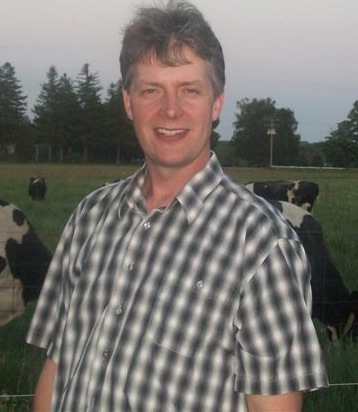 John Van Dyk is a dairy farmer from Tavistock, Ontario. He was born and raised in Perth County on the dairy farm that has been in the family since 1956 and is a milk producer for the Dairy Farmers of Ontario. John is currently a board member for the Christian Farmers’ Federation of Ontario. He has served on the Perth County Milk Committee and the Oxford Milkway Transport Co-op Board and is currently also a member of the Board of Autism Canada. The Van Dyk’s are using only A2/A2 genetics on their herd in hopes of supplying A2/A2 milk to the Ontario Consumer. John and his wife Anna have six girls and one boy between the ages of 2 -14 years of age and the only milk consumed by the family is unpasteurized.
John Van Dyk is a dairy farmer from Tavistock, Ontario. He was born and raised in Perth County on the dairy farm that has been in the family since 1956 and is a milk producer for the Dairy Farmers of Ontario. John is currently a board member for the Christian Farmers’ Federation of Ontario. He has served on the Perth County Milk Committee and the Oxford Milkway Transport Co-op Board and is currently also a member of the Board of Autism Canada. The Van Dyk’s are using only A2/A2 genetics on their herd in hopes of supplying A2/A2 milk to the Ontario Consumer. John and his wife Anna have six girls and one boy between the ages of 2 -14 years of age and the only milk consumed by the family is unpasteurized.
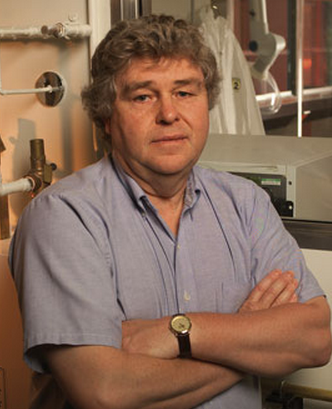 Dr Mansel Griffiths is the Dairy Farmers of Ontario/NSERC Industrial Research Chair in Dairy Microbiology in the Food Science Department and the University of Guelph. His current research interests include rapid detection of foodborne pathogens; factors controlling growth and survival of microorganisms in foods; and beneficial uses of microorganisms. Dr Griffiths has authored more than 300 peer-reviewed publications and is an editor for several scientific journals. He has edited four books, including “Improving the Safety and Quality of Milk”, which was published in 2010. Among his many acclaims, Dr. Griffiths is also the Director of the Canadian Research Institute for Food Safety and a member of both the Maple Leaf Foods Advisory Council and the Health Canada Food Expert Advisory Committee.
Dr Mansel Griffiths is the Dairy Farmers of Ontario/NSERC Industrial Research Chair in Dairy Microbiology in the Food Science Department and the University of Guelph. His current research interests include rapid detection of foodborne pathogens; factors controlling growth and survival of microorganisms in foods; and beneficial uses of microorganisms. Dr Griffiths has authored more than 300 peer-reviewed publications and is an editor for several scientific journals. He has edited four books, including “Improving the Safety and Quality of Milk”, which was published in 2010. Among his many acclaims, Dr. Griffiths is also the Director of the Canadian Research Institute for Food Safety and a member of both the Maple Leaf Foods Advisory Council and the Health Canada Food Expert Advisory Committee.
Dr. Rosana Pellizzari is the Medical Officer of Health for the Peterborough County-City Health Unit. Dr. Pellizzari is the current Chair for Peterborough’s Community Food Network (CFN), a local group comprised of food activists, local stakeholders and community members involved with identifying strategies to increase access to healthy food, educating and engaging the community to address food security and poverty issues, and supporting the promotion and increased production of local food.
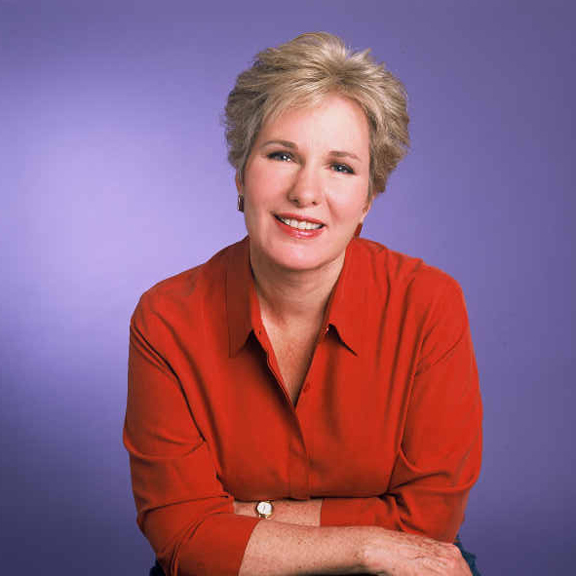 Sally Fallon-Morell is President of the Weston A. Price Foundation which she co-founded with nutritionist Mary Enig, PhD. She is a journalist, chef, nutrition researcher, homemaker and community activist. Ms. Fallon’s cook book Nourishing Traditions, The Cookbook that Challenges Politically Correct Nutrition and the Diet Dictocrats, has become a kitchen bible for thousands of people world wide. The Weston A. Price Foundation is a nonprofit, tax-exempt nutrition education foundation with chapters in many countries across the world with most Canadian provinces represented by volunteer Chapter Leaders.
Sally Fallon-Morell is President of the Weston A. Price Foundation which she co-founded with nutritionist Mary Enig, PhD. She is a journalist, chef, nutrition researcher, homemaker and community activist. Ms. Fallon’s cook book Nourishing Traditions, The Cookbook that Challenges Politically Correct Nutrition and the Diet Dictocrats, has become a kitchen bible for thousands of people world wide. The Weston A. Price Foundation is a nonprofit, tax-exempt nutrition education foundation with chapters in many countries across the world with most Canadian provinces represented by volunteer Chapter Leaders.
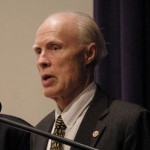 Dr. Ted Beals is a Pathologist, Health educator and Administrator. He is the retired National Director of Pathology & Laboratory Services, Dept. of Veterans Affairs. He has retired from his practice in the Veterans Health Administration and faculty of the University of Michigan Medical School. He continues his years of biomedical research, focusing since retirement, on dairy safety and foodborne illnesses. He is an international consultant and educator on the medical aspects of agricultural product safety He is a lifelong advocate for organic principles, sustainable and local agriculture and the nutritional and medical values of nutrient dense foods. Ted is active in promoting the rights of farmers to provide and consumers to obtain milk and other locally produced fresh unprocessed foods. Ted lives with his wife Peggy on 40 acres in rural Michigan
Dr. Ted Beals is a Pathologist, Health educator and Administrator. He is the retired National Director of Pathology & Laboratory Services, Dept. of Veterans Affairs. He has retired from his practice in the Veterans Health Administration and faculty of the University of Michigan Medical School. He continues his years of biomedical research, focusing since retirement, on dairy safety and foodborne illnesses. He is an international consultant and educator on the medical aspects of agricultural product safety He is a lifelong advocate for organic principles, sustainable and local agriculture and the nutritional and medical values of nutrient dense foods. Ted is active in promoting the rights of farmers to provide and consumers to obtain milk and other locally produced fresh unprocessed foods. Ted lives with his wife Peggy on 40 acres in rural Michigan
 Sara Zborovski is a partner at Gilbert’s LLP. Her practice is focused on the regulation of the pharmaceutical and food industries, and the intersection of the intellectual property and regulatory laws as they impact these industries. Sara’s expertise includes assisting clients in navigating the complex regulatory pharmaceutical, food, natural health product and medical device environments to get products from idea to market, providing strategic advice on branding and marketing strategies, intellectual property issues and managing global product portfolios. Sara is a regular contributor to Food in Canada Online magazine, and is an active blogger (www.thefoodlawyer.ca) and tweeter (@thefoodlawyer).
Sara Zborovski is a partner at Gilbert’s LLP. Her practice is focused on the regulation of the pharmaceutical and food industries, and the intersection of the intellectual property and regulatory laws as they impact these industries. Sara’s expertise includes assisting clients in navigating the complex regulatory pharmaceutical, food, natural health product and medical device environments to get products from idea to market, providing strategic advice on branding and marketing strategies, intellectual property issues and managing global product portfolios. Sara is a regular contributor to Food in Canada Online magazine, and is an active blogger (www.thefoodlawyer.ca) and tweeter (@thefoodlawyer).
27 responses to “NEW! Recording now available for The Udder Truth: An Opening Dialogue on the Risks and Opportunities of Unpasteurized Milk”
Leave a Reply
You must be logged in to post a comment.

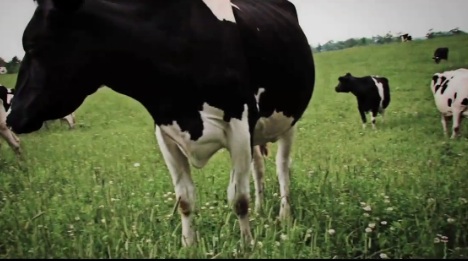
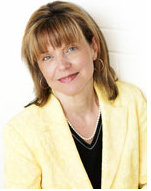
I wonder why there is no Canadian Raw Milk Farmer on the Panel
John Van Dyk is a dairy farmer who is pro-raw milk but not selling it. We thought that this perspective is a great one to have since the legality of raw milk is still in question. We also didn’t want to get bogged down in the details of on-going court cases although they will certainly come up and are an important part of the discussion. Hopefully you’ll be watching and can add to the discussion. 🙂
John Van Dyk is a dairy farmer who is pro-raw milk but not selling it. We thought that this perspective is a great one to have since the legality of raw milk is still in question. We also didn’t want to get bogged down in the details of on-going court cases although they will certainly come up and are an important part of the discussion. Hopefully you’ll be watching and can add to the discussion. 🙂
I’m wondering why the probable health benefits of milk derived from grass-fed cows, as opposed to grain-fed, isn’t being addressed along with the risks and benefits of raw milk?
That is a great idea! Come and ask your question at the webinar! We only have so much time, of course, so maybe this is just the beginning and it will spark many subsequent webinars and debates.
It is the “THE GREAT CANADIAN RAW MILK DEBATE OF THE CENTURY”
Very good question Glencolton …. I would like to know the answer to
that as well … I could give you an answer but that might start a mini
war, and I have better things to do …
DFO farmers are raw milk farmers. I think that John Van Dyck is a great person to talk about his since he has experience on both sides of the fence. You don’t have to be selling raw milk out the back door to talk about how it could be produced safely.
Sally will more than likely address that.
So you are saying that DFO supply’s raw milk to who? Stores? Customers? Or are they milking cows and that milk is being pasteurized for sale in stores? A big difference between a quota farmer/big dairy and a farmer who is supplying raw milk out the FRONT door! Or any door for that matter.
He is pro raw milk, but he is a quota farmer. There is nothing wrong with that, but why not have someone on the panel who is a raw milk farmer and who does sell it. That person didn’t have to be Michael Schmidt, there are other farmers that would have been available.
I hope they address the fact that raw milk from grass fed cows can kill you just the same and just as fast as raw milk from a grain fed cow. At the end of the day more dairy cows used for raw milk are getting grain of some sort.
Hi, I’m from Australia, I just wanted to let you know we have a raw milk product here called Cleopatra Milk. It’s actually sold as bath milk, yet its up to the consumer what they choose to do. It beautiful tasting milk, though I’m unable to drink it myself. I react to it with a kind of panic attack which is wierd. Anyway, I think the company has a blog, if you google the name it should come up. I don’t know if they have information that could contribute to your discussion, but they might 🙂
Why does this have to be soo overblown . Too high created expectations might end up in a great dissappointment.
It is not a Canadian Raw milk debate by the way. There are two Americans on the panel.
I don’t think it would be as easy as you think to find another raw milk farmer to speak on this panel. Michael has already been targeted but getting someone who hasn’t been targeted to speak would be risky for them and I have no idea who would have done it. Most quota dairy farmers drink their own milk raw so they obviously know how to produce it safely for themselves. In that context, these farmers are just as qualified as our raw milk farmers to speak on how raw milk could be produced safely in Canada and what the benefits to rural communities might be, in my humble opinion.
Carolyn, will you have a written transcript of the debate. I was unable to hear anything over the computer or the phone. My computer and phone are fine, I don’t know why I couldnt hear anything even over the phone.thank you.
Dear Carolyn and Ravenna and Margo;
Thank you very much for the amazing and informative presentation and all your Herculean efforts to make this webinar possible. Thank you to all the great speakers for taking time out of their day to share their research and opinions. I hope there will be many more presentations like this in future. This was a real breakthrough in Canada in finally seeing the 2 sides have a respectable and dignified conversation with each other. Thank you Carolyn for managing so expertly the many technical considerations while simultaneously MC’g the whole webinar to completion.
Lastly I would be curious to know if you will publish the number of people that watched it live ? As compared to how many signed on in advance ?
Raoul
Hi Louise,
I’m sorry that it was confusing, but you didn’t need your phone at all! The webinar should have been broadcasting through your computer speakers or headphones. Have you tried watching the recording yet? It’s posted above.
Carolyn, Ravenna, and Margo,
I enjoyed the webinar very much. I found all of your guests to be well intensioned, an well informed, and credible.
I found it difficult to reconcile their widely differing views.
If we consider that we are discussing two very different milk products perhaps this makes sense.
Industrial milk production, because of the scale of both processing and distribution may well be an unsafe food without pasteurization. Raw milk production appears to be more local and closer to the consumer in time and handling and is in essence more like farmers consuming there own milk – which appears to be quite safe.
Perhaps we should be discussing what it would take to create a safe, large scale distribution system for raw milk. Our current system is predicated on the assumption that all milk coming into the system will be pasteurized.
Dave
I agree Dave. Raw milk from grass fed animals on small farms is a different product from mass produced milk from cows fed rations. Most of us looking to have raw milk decriminalized are not wanting it to be produced with large production models. I think we would have a very hard time convincing Health Canada that it could be done safely on a large scale. An exemption under the law for small grass fed herds with private contracts with consumers is what I would like to see. It addresses the “public” health concern and it helps the small farmer at the same time. It also keeps any problem contained. From everything I’ve learned and read, it seems that grass fed animals are much less likely to have contaminated milk in the first place so if the farmer is following specific hygiene protocols and the consumer is instructed on proper care of the milk after picking it up at the farm, very little risk in involved and any problem is really easy to trace and correct.
Wonderful article! We are linking to this particularly
great content on our website. Keep up the great writing.
Hello! Someone in my Myspace group shared this site with us so
I came to take a look. I’m definitely enjoying the information. I’m
book-marking and will be tweeting this to my followers!
Outstanding blog and terrific style and design.